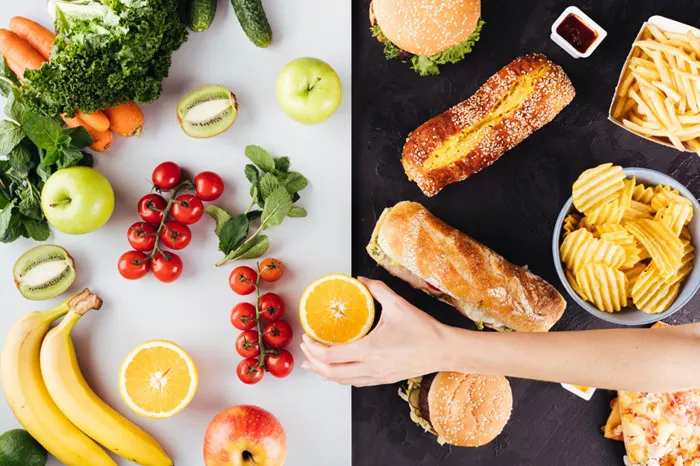Pumping breast milk is a vital practice for many breastfeeding mothers. While it allows flexibility in managing feeding times, it also brings attention to the foods consumed by the mother. What a mother eats can significantly affect the quality of her breast milk. In this article, we will explore 18 foods to avoid when pumping to ensure both the mother’s and the baby’s health and well-being.
18 Foods to Avoid When Pumping
1. Caffeine-Rich Foods and Drinks
Impact on Milk Production and Baby
Caffeine, found in coffee, tea, and some sodas, can affect milk production. High caffeine levels can lead to irritability and poor sleep in infants. It is advisable to limit caffeine intake to less than 300 mg per day, which is about 2-3 cups of coffee.
2. Alcohol
Effects on Milk and Baby’s Health
Alcohol can pass into breast milk and affect a baby’s development. It can also interfere with milk production and let-down reflex. It is recommended to avoid alcohol or consume it in moderation, allowing time for it to clear from the system before breastfeeding or pumping.
3. Spicy Foods
Impact on Baby’s Digestive System
Spicy foods can sometimes cause discomfort or colic in infants. While spices can enhance the flavor of meals, they may irritate a baby’s sensitive digestive system. If a mother notices her baby becoming fussy after consuming spicy foods, it may be wise to avoid them.
4. Dairy Products
Possible Allergies and Intolerances
Some infants may be sensitive or allergic to dairy products. Symptoms can include gas, colic, or eczema. If a baby shows signs of discomfort, reducing or eliminating dairy products from the mother’s diet may be necessary to help alleviate these symptoms.
5. Fish High in Mercury
Risks to Baby’s Development
Certain fish, such as shark, swordfish, and king mackerel, contain high levels of mercury, which can affect an infant’s developing nervous system. Opt for low-mercury fish like salmon or tilapia and limit consumption to avoid potential risks.
6. Artificial Sweeteners
Health Concerns for Baby
Artificial sweeteners, like aspartame and saccharin, can pass into breast milk. There are concerns about their long-term effects on infants. While research is ongoing, it may be prudent to avoid or limit the intake of artificial sweeteners.
7. Processed Foods
Nutritional Quality and Additives
Processed foods often contain preservatives, artificial colors, and unhealthy fats. These additives can potentially affect the quality of breast milk. A diet rich in whole, unprocessed foods is generally recommended for optimal milk quality.
8. High-Sugar Foods
Effects on Milk Production and Baby’s Health
Foods high in sugar can lead to rapid spikes in blood sugar levels, which may affect milk production and quality. High sugar intake can also contribute to the development of gestational diabetes and other health issues. Opt for balanced meals with natural sugars.
SEE ALSO: 18 Benefits of Breastmilk for Skin
9. Foods That Cause Gas
Impact on Baby’s Comfort
Foods such as beans, cabbage, and broccoli can cause gas and bloating in some individuals. If these foods seem to affect the baby’s comfort, it might be beneficial to reduce or avoid them while pumping.
10. Foods with High Salt Content
Effects on Baby’s Health
High salt intake can lead to high blood pressure and kidney strain. It can also affect breast milk composition. Reducing high-salt foods, such as processed meats and salty snacks, helps maintain overall health and improves milk quality.
11. Certain Herbal Teas
Potential Effects on Milk Production
Some herbal teas, like peppermint and sage, can decrease milk production. If using herbal teas, consult with a healthcare provider to ensure they are safe and won’t negatively impact milk supply.
12. Refined Carbohydrates
Impact on Milk Quality
Refined carbohydrates, such as white bread and pastries, can lead to nutrient deficiencies and poor milk quality. Whole grains are a better option as they provide more nutrients and help maintain stable energy levels.
13. High-Fat Foods
Effects on Milk Composition
Foods high in unhealthy fats, like fried foods and fast food, can impact the composition of breast milk. Opting for healthy fats from sources like avocados, nuts, and olive oil ensures better milk quality and overall health.
14. Unpasteurized Foods
Risk of Infection
Unpasteurized dairy products and juices carry a risk of bacterial infection. These can affect both the mother’s and the baby’s health. It is best to choose pasteurized options to reduce the risk of contamination.
15. Excessive Soy Products
Potential Hormonal Effects
Soy products contain phytoestrogens, which may affect hormone levels and milk supply. While moderate soy consumption is generally considered safe, excessive intake might have unintended effects on milk production.
16. Nut Butters
Allergy Concerns
Nut butters can be a potential allergen for infants. If there is a family history of nut allergies, it may be wise to limit nut butter intake to avoid possible allergic reactions in the baby.
17. Foods with High Levels of Additives
Potential Health Effects
Foods with numerous additives, such as colorings and preservatives, may affect milk quality and infant health. Opt for natural, whole foods to avoid unnecessary chemicals.
18. Foods That Cause Heartburn
Impact on Comfort
Foods that cause heartburn, such as citrus fruits and tomatoes, can affect comfort and may also influence the baby if they cause any irritation. If heartburn persists, reducing or avoiding such foods may help.
Conclusion
Maintaining a balanced diet while pumping is crucial for both the mother’s health and the quality of breast milk. By avoiding the above foods, mothers can ensure they provide the best possible nutrition for their babies while also supporting their own well-being. Always consult with a healthcare provider for personalized advice and guidance on dietary choices during breastfeeding.


